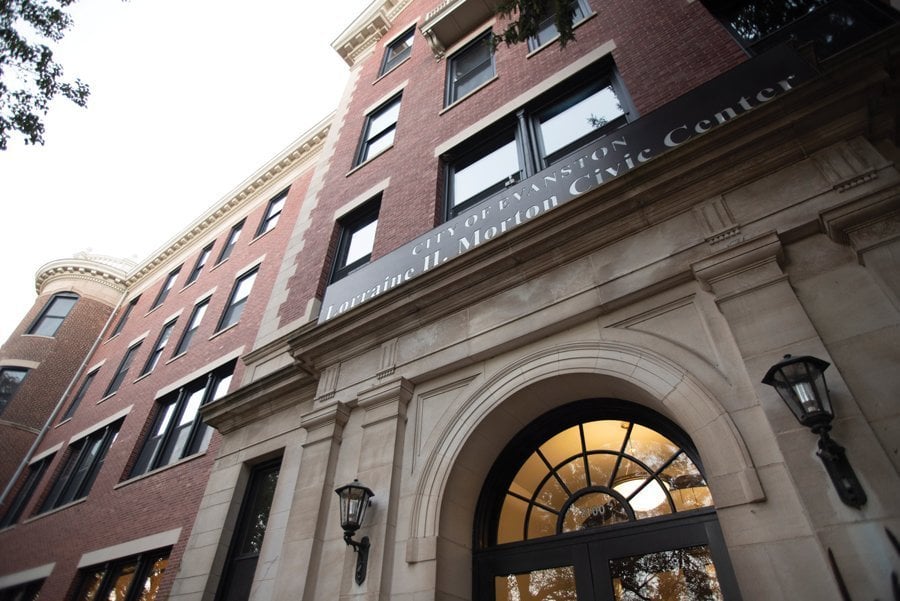City Council tables ordinance to replace Board of Ethics with Special Counsel
Daily file photo by Colin Boyle
The Lorraine H. Morton Civic Center. City Council approved the creation of the Reimagining Public Safety Committee, tasked with analyzing the city’s public safety efforts and providing recommendations for the 2022 city budget.
May 11, 2021
City Council tabled an ordinance Monday to replace the Board of Ethics with a Special Counsel, an independent attorney who would investigate complaints of ethics violations by city officials and employees.
Council members discussed who would be in charge of reviewing ethics violations. Ald. Cicely Fleming (9th) said residents should be involved in making decisions about the complaints.
Fleming said the city should consider modeling its process off of Skokie, which employs citizens, two of whom Corporation Counsel Nicholas Cummings said are lawyers, as part of its Ethics Commission. In Skokie, the commission has an Ethics Adviser who may be an employee or officer of the city and is appointed by the Village President.
“I (don’t) think not having citizens, or at least not giving it a go with some citizens who are going to properly train, and have the right expertise, sends the right message,” Fleming said. “I would like us to go in the way of Skokie.”
However, Cummings said appointing an independent Special Counsel to judge the ethics violations is a more efficient way to handle complaints and avoid impartiality.
Cummings said the intention of hiring a Special Counsel is not to eliminate citizen participation, but rather to make sure the complaints are heard and reviewed fairly and efficiently.
“We wouldn’t really have any sort of questionable issue of council members potentially being in contact with the Board of Ethics… if we had a truly neutral party adjudicating these ethics complaints,” Cummings said.
Ald. Melissa Wynne (3rd) said for the last four years, the Board of Ethics has not served people as well as it should have.
Both the individuals who have filed ethics complaints and those who are being reported for violations have faced problems meeting a quorum and having cases addressed, Wynne said.
“Both parties are being denied speedy resolution,” she said. “That will be eliminated by this ordinance. I think it’s really critically important that an ethics issue be addressed appropriately, and impartially and quickly.”
According to the ordinance, the Special Counsel would be nonpartisan and independent, and would not be required to live in Evanston, as is the case for the Board of Ethics. However, Fleming said City Council members and elected officials who are being investigated for violations could contact the Special Counsel, whether or not they are residents.
Wynne said the city’s attempts to have citizens participate in the ethics process have not been successful. Sometimes, she said, zoning board or city commission members have had issues with “ex parte contact,” where people contact their adjudicating parties.
To avoid bias in decision making, the city trains board members to be impartial — which Wynne said is especially important when the city is dealing with potential ethics violations, where there are higher stakes.
“When we have an issue like this, an ethics issue, it’s really critically important that we’ve not had even the hint of ex parte contact from someone who is bringing a complaint or the respondent,” Wynne said. “The likelihood of that is remote when we have an administrative adjudicator.”
Fleming made a motion to table the vote. Outgoing Ald. Ann Rainey (8th) attempted to overrule the hold but her motion failed. The new City Council is planned to vote on the Special Counsel in a future council meeting.
Email: [email protected]
Related Stories:
— Proposal to replace Board of Ethics headed to City Council from Rules Committee
—Resident Board of Ethics to disband, be replaced by Special Counsel
—Board of Ethics reviews jurisdictions of complaints against mayor, alderman


